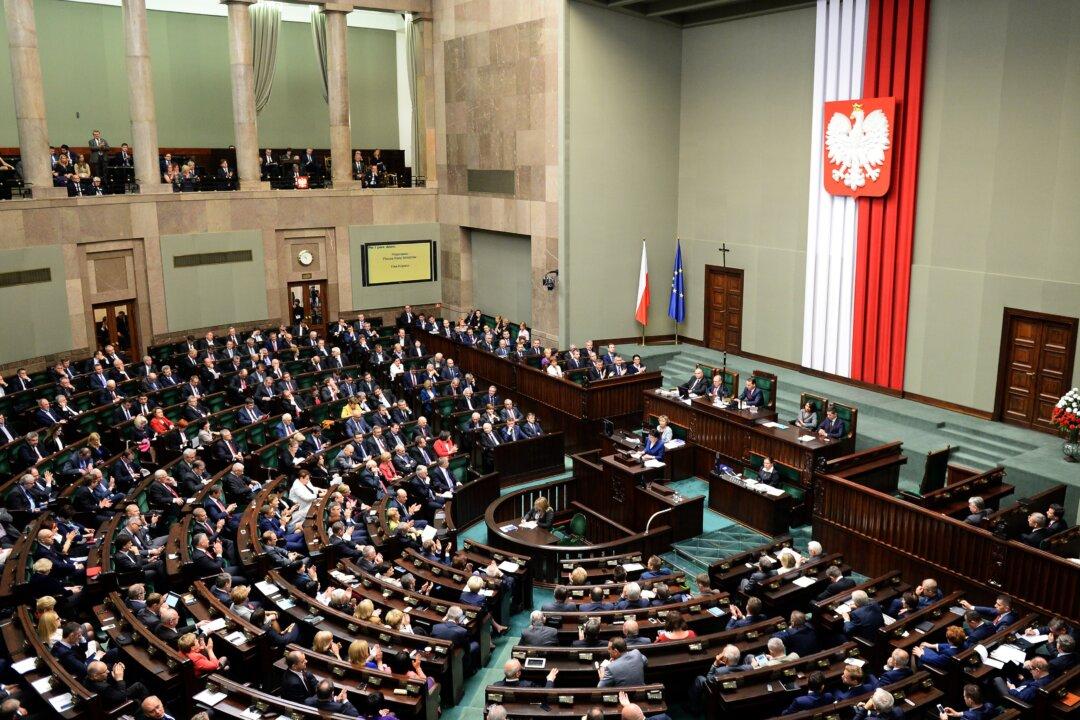WARSAW, Poland—Poland’s Parliament on Friday adopted disputed new regulations for police surveillance that widen its scope but also put it under stricter court control.
The legislation is another element in the sweeping reforms that the ruling conservative Law and Justice party, in power since November, is quickly introducing to some state bodies. Reforms to the Constitutional Tribunal and to state media have put Poland at odds with the European Union, which has opened a procedure checking whether they respect the bloc’s principle of rule of law.
That decision Wednesday by the EU’s executive body, the European Commission, came as a bitter surprise to the leaders in Warsaw, who argue they have the voters’ mandate to reform the country. They accuse the liberal and pro-EU opposition of bringing Poland’s internal disputes to the EU forum.
Law and Justice says it aims to help the underprivileged to share in the country’s exemplary economic growth. More reforms are planned that include putting prosecutors under direct authority of the justice minister, imposing taxes on banks and supermarkets and giving monthly bonuses to families with at least two children.





